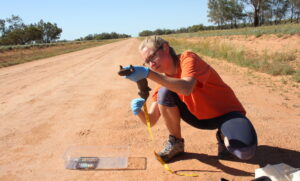This Valentine’s Day, many single folk will flock to online dating sites in the hopes of finding love (or something else). Each year, the major sites such as OkCupid and Match.com report spikes in new user sign-ups and activity on 14 February.
But what these lonely hearts may not realise is they’re also participating in something larger, something not immediately obvious and all in the name of science (mostly).
Just like everything online these days, dating sites keep close tabs on everything their users do, which is how we know about the increased usage over V-Day that I mentioned. This data is used for everything from advertising to making their products better. But one of these sites took this data collection and analysis to the next level.
“We experiment on human beings”
OkCupid, one of the top dating sites, has been using its members and the data they generate to study human relationships. And this includes, as Chris Rudder (OkCupid co-founder) somewhat proudly proclaimed, experimenting on its users.
If you’re willing to overlook the fact that research was carried out on subjects who did not give informed consent (Facebook copped a lot of flak for doing the same thing in 2012), some of OkCupid’s findings are pretty interesting.
Some give you hope for humanity. Others not so much. Since it’s nearly Valentine’s Day, let’s start with the hopeful.
Hopeful
In 2015, OkCupid dug into its data archive to compare contemporary user behaviour on the site with that of 10 years prior in 2005. And apparently, things have mostly changed for the better.
While casual relationships continue to be more accessible than ever in history thanks to dating apps and the rise of hookup culture, users in 2015 were actually looking for more depth in their relationships than they were in 2005.
For example, in 2015, people were less likely to have sex on their first date. They also generally reported that relationships just for sex were less appealing than their counterparts in 2005.

OkCupid researchers also found that users in 2015 were 15% less critical about women talking about their sex lives than they were 10 years ago. Go feminism!
Overall, the researchers reported, users in 2015 appeared to be more thoughtful and progressive.
Not so much
In the not so hopeful category, OkCupid ran a number of experiments to determine the importance of appearance (or at least your profile photo). OkCupid gave users two scales to rank each other: personality and looks. What they found was the distribution of scores based on personality were almost exactly the same as those based on appearance. The conclusion? According to Chris, “Your picture is worth that fabled thousand words, but your actual words are worth … almost nothing.”
Also in the not so hopeful category was that, according to the data, users could be a bit more honest. For example, users are generally 5 centimetres shorter in person than they are online, they’re generally 20% poorer and the more attractive a user’s photo, the more likely it’s out of date.

Discussion
If these stats got you down, it’s always good form to put on your critical thinking hat and dig into the data a bit more. For example, OkCupid has a largely American user base, so these findings are not necessarily reflective of Australians or the rest of the world. We’re surely more honest and less superficial, right?
And here’s some more science-based hope to keep you feeling happy this V-Day: other research that came out late last year found that online dating encourages diversity and is more likely to result in stronger relationships.
Happy Valentine’s Day!









